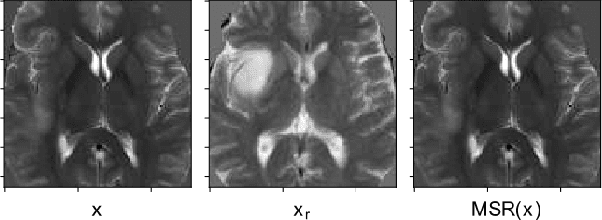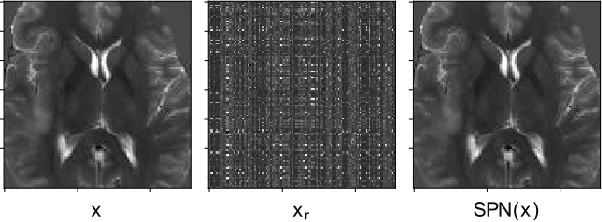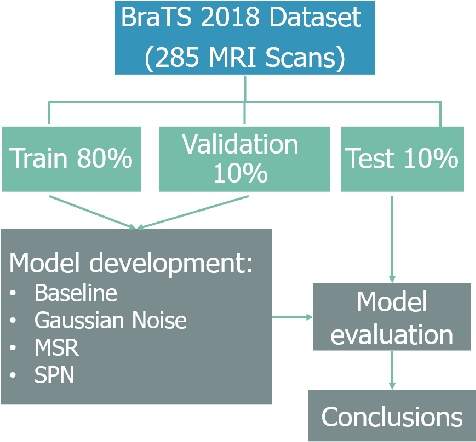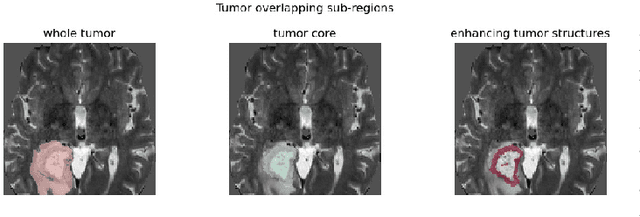Non Parametric Data Augmentations Improve Deep-Learning based Brain Tumor Segmentation
Paper and Code
Nov 25, 2021



Automatic brain tumor segmentation from Magnetic Resonance Imaging (MRI) data plays an important role in assessing tumor response to therapy and personalized treatment stratification.Manual segmentation is tedious and subjective.Deep-learning-based algorithms for brain tumor segmentation have the potential to provide objective and fast tumor segmentation.However, the training of such algorithms requires large datasets which are not always available. Data augmentation techniques may reduce the need for large datasets.However current approaches are mostly parametric and may result in suboptimal performance.We introduce two non-parametric methods of data augmentation for brain tumor segmentation: the mixed structure regularization (MSR) and shuffle pixels noise (SPN).We evaluated the added value of the MSR and SPN augmentation on the brain tumor segmentation (BraTS) 2018 challenge dataset with the encoder-decoder nnU-Net architecture as the segmentation algorithm.Both MSR and SPN improve the nnU-Net segmentation accuracy compared to parametric Gaussian noise augmentation.Mean dice score increased from 80% to 82% and p-values=0.0022, 0.0028 when comparing MSR to non-parametric augmentation for the tumor core and whole tumor experiments respectively.The proposed MSR and SPN augmentations have the potential to improve neural-networks performance in other tasks as well.
 Add to Chrome
Add to Chrome Add to Firefox
Add to Firefox Add to Edge
Add to Edge